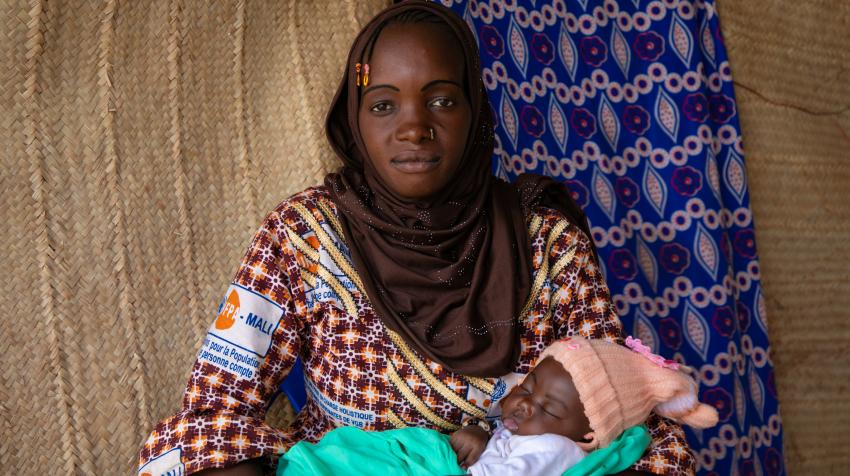At the UN Millennium Summit in 2000, the international community declared it would spare no effort to achieve the Millennium Development Goals (MDGs), which included halving global poverty, getting all the world's children into school, reducing infant and maternal mortality, and providing clean water and sanitation.
Seven years later, we have made some progress: 34 countries are now on track to meet the infant mortality goal, 44 countries are on their way to achieving the poverty goal, and 47 countries are on target with the education goal. Aid increases and debt cancellation have helped to put nearly 40 million more African children into school in the last seven years. Today, more than 1 million people are on antiretroviral treatment in sub-Saharan Africa, compared with 100,000 just three years ago.
However, overall, the international community is failing to meet the set targets. Some 72 million children of primary school age are still not in school and it is estimated that another $9 billion a year must be spent worldwide to meet the MDG on education.
Only one third of all countries worldwide are on track to meet the goal of halving the proportion of people without access to safe drinking water, with an extra $8 billion needed annually to close this gap. Over half a million women still die each year from treatable and preventable complications during pregnancy or childbirth, and another $4 billion a year is needed to achieve the goals on maternal and newborn health.
We now have just seven years to go -- we are at the midpoint of the 2015 target date -- a few short years to make a difference for millions of people. Today, it is clear that we have the technology to cure, the science to heal and the medicine to save lives. The question is: Do we have the political will to employ the ingenuity and resources we have to help those who most need it?
The Government of the United Kingdom is playing its part. It is the world's second largest donor behind the United States. In October 2007, the Government announced a significant increase in development aid over the next three years. This means that by 2010, the United Kingdom's aid spending will have more than tripled in real terms since 1997 and it is on track to meet its pledge to spend 0.7 per cent of the gross national income on development by 2013.
However, none of us can achieve the MDGs alone: not Governments, how ever well intentioned; not the private sector, how ever generous; not non-governmental organizations (NGOs) nor faith-based groups, how ever determined. We can only meet the MDGs through a genuine partnership together. That is why, in July 2007, Prime Minister Gordon Brown of the United Kingdom joined UN Secretary-General Ban Ki-moon in New York to urge the international community to meet the eighth MDG -- to develop a global partnership for development.
What we need is an international effort that harnesses the power of everyone: the private sector, individuals, consumers, faith-based groups, civil society organizations, as well as Governments -- North and South -- to work together to achieve the MDGs. The destinies of the poorest people in the world will ultimately be decided by the actions of Governments, institutions and citizens in developing countries. Our task is to support and empower them to deliver for those who need it most.
Governments in developed countries must deliver on previous promises: to cancel debt, provide more and better aid, create a level playing field for trade and reduce carbon emissions. The private sector has the expertise for wealth and job creation that, if fully mobilized, can help to deliver growth in developing countries. This is key, for the best chance for individuals to pull themselves out of poverty is to find productive work.
Global institutions must make the difficult choices needed to create an international system truly fit for the twenty-first century, one which is capable of delivering change to those who need it most. Faith-based groups and NGOs formed the cornerstone of the campaign in 2005 to make poverty history and can again help to deliver the popular support needed to accelerate progress towards the MDGs.
We have seen millions of people campaign together to end the debt of the least developed countries, increase aid and make trade rules fairer for developing countries. At the Gleneagles Summit in 2005, G8 leaders heard the demands made by this international movement and pledged to double aid by 2010, promising an extra $50 billion worldwide and $25 billion for Africa. The G8 pledged to write off the debts of 18 of the world's poorest countries, including $17 billion of Nigeria's debt, and committed to end all export subsidies. Today, these promises need to be kept and built upon.
In 2008, I hope to see different partners across the world develop concrete action plans to galvanize progress on the Millennium Development Goals. I hope that key European Union, G8 and UN meetings in 2008 will be occasions to deliver these action plans. I remain optimistic, despite the scale of the challenges that we face. I believe that, with all these efforts working together, it is possible to achieve justice on a global scale.
The UN Chronicle is not an official record. It is privileged to host senior United Nations officials as well as distinguished contributors from outside the United Nations system whose views are not necessarily those of the United Nations. Similarly, the boundaries and names shown, and the designations used, in maps or articles do not necessarily imply endorsement or acceptance by the United Nations.



